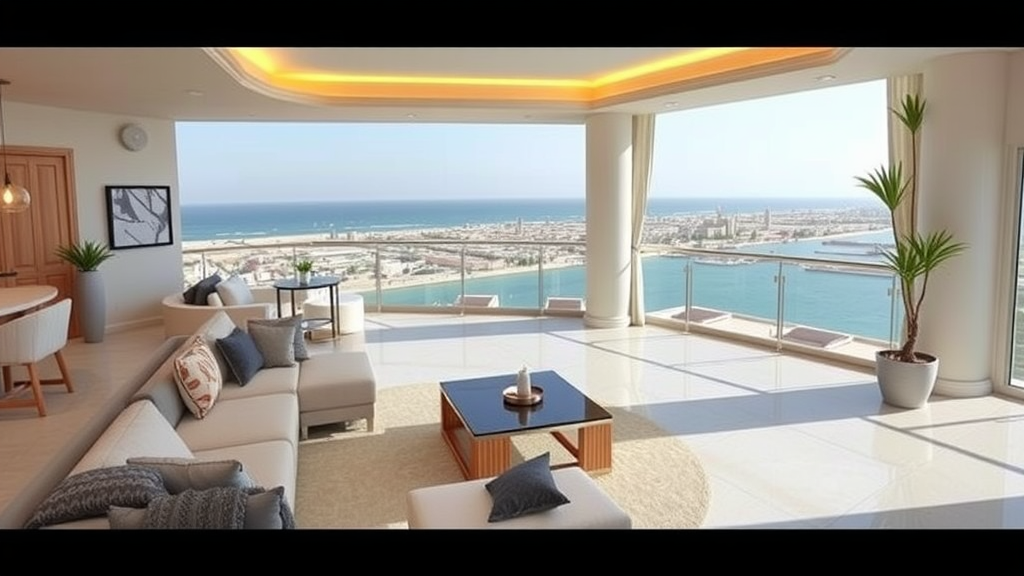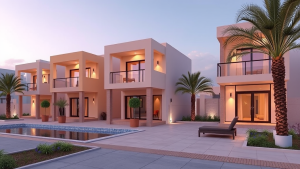Methods used by dutch investors to calculate the true cost of owning property in Hurghada
For Dutch investors looking to buy property in Hurghada, understanding the financial landscape is crucial. The true cost of owning a property in this popular Egyptian resort town extends beyond just the purchase price. Here’s a breakdown of the various methods and factors that Dutch investors typically consider.
Initial purchase costs
When you consider buying property in Hurghada, the initial costs can be significant. These expenses include:
- Property Price: The most obvious cost is the property’s asking price. It’s essential to conduct market research to ensure you’re paying a fair amount.
- Property Transfer Tax: In Egypt, the transfer tax can add an extra 3% to 7% to your purchase price, depending on the property’s value. This should be calculated as part of your initial investment.
- Notary and Legal Fees: Hiring a notary for legal documents can cost you around 1% of the property’s price. Legal guidance is critical to avoid pitfalls during the buying process.
- Survey Costs: If you want to ensure the property’s quality, hiring a surveyor is advisable. This cost varies based on the property size and location.
Ongoing costs
Beyond initial costs, ongoing expenses can add up quickly when owning property in Hurghada. Here are the expenses to keep in mind:
- Annual Property Taxes: While property tax rates in Egypt are lower than in many European countries, it’s still a crucial factor in your annual budget.
- Homeowners Association Fees: If your property is part of an apartment complex or community, you might face monthly HOA fees for maintenance of communal areas.
- Utilities: Electricity, water, and internet costs vary but are essential to budget for monthly. These can quickly add to your overall owning cost.
- Insurance: Property insurance is necessary to protect your investment. Ensure you shop around for the best rates that suit your needs.
Investment returns and real estate values
Many Dutch investors gauge the true cost of ownership by also considering the potential returns on their investment. Factors that influence this include:
- Rental Income: If you plan to rent out your property, estimating potential rental yields is essential. Research market trends to find the average rental prices in Hurghada.
- Property Appreciation: The real estate market in Hurghada has shown signs of growth. Investigate past trends to understand potential future values.
- Market Demand: More investment in the area leads to increased demand. Understanding external economic factors can also impact property values.
Tax implications
For Dutch investors, tax implications can significantly affect the overall investment strategy. Key areas to research include:
- Double Taxation Agreements: Familiarize yourself with treaties between the Netherlands and Egypt to avoid being taxed on your income twice.
- Capital Gains Tax: Understand how capital gains are taxed in Egypt and the Netherlands when you sell your property.
Financing options
Investigating your financing options can also impact the true cost of ownership. Dutch investors typically consider:
- Mortgage Availability: Research whether you’re eligible for a mortgage in Egypt or opt for international financing options.
- Interest Rates: Be aware of the current interest rates, as they will affect your monthly payments and the total cost over time.
calculating the true cost of owning property in Hurghada requires a comprehensive understanding of both initial costs and ongoing expenses. By carefully evaluating all financial aspects, Dutch investors can make informed decisions and enjoy the benefits of property ownership in this beautiful coastal city.
Key factors influencing property ownership costs in Hurghada for foreign investors
Investing in property is a significant decision, especially for foreign investors looking at Hurghada, Egypt. Understanding the true costs associated with ownership can be quite complex. Here are the key factors that influence property ownership costs in this vibrant coastal city.
Property purchase price
The initial cost of the property is often the most considerable expense. When you’re considering buying a home in Hurghada, prices can vary widely based on the location, size, and amenities of the property. For example:
- Properties near the beachfront typically have higher price tags.
- New developments may offer luxurious options at premium prices.
- Older properties or those farther from the sea can be more budget-friendly.
Legal fees
Legal transactions require proper documentation and adherence to local laws. It’s crucial to hire a trusted lawyer who specializes in property transactions for foreigners. Legal fees might include:
- Title deeds transfer fees
- Notary fees
- Property registration charges
These costs can add a few hundred to several thousand Egyptian pounds to your overall expenditure.
Taxes
Understanding the taxation structure is essential. Investors in Hurghada are subject to several taxes, which may include:
- Property Tax: An annual property tax is calculated based on the market value of the home.
- Capital Gains Tax: When selling the property, a capital gains tax might apply on the profit made from the sale.
Being aware of these taxes helps you plan your investment better.
Maintenance and homeowner association fees
Owning a property, especially in a condominium or resort community, usually comes with ongoing maintenance costs. These costs include:
- General upkeep of the building and grounds
- Common amenities like swimming pools and gyms
- Landscaping and security services
Homeowner association fees can vary, so it’s essential to read reviews or ask existing residents about their experiences.
Utility costs
Living in Hurghada means you’ll need to account for your basic living expenses, which can include water, electricity, and internet. The cost for utilities can vary depending on your usage. For example:
- Air conditioning during the hot months can significantly increase electricity bills.
- Water costs may vary but are generally reasonable in Hurghada.
It’s advisable to budget for these costs to avoid surprises.
Insurance
Property insurance is another item to factor in. While it’s not always mandatory, having your property insured against natural disasters, theft, and other potential risks is wise. Insurance costs can vary based on:
- Location of the property
- Size and condition of the home
- Coverage amount
Financing options
If you do not plan to pay for the property outright, you may consider mortgage options. However, not all banks offer mortgages for foreign investors. If you do secure financing, remember to factor in:
- Interest rates
- Loan processing fees
- Insurance for the loan
Understanding these elements can guide you while negotiating your borrowing terms.
Currency exchange rates
As a foreign investor, fluctuations in currency exchange rates can impact your overall investment cost. Changes can affect everything from the purchase price to ongoing costs. Keeping an eye on exchange rates can help you make more informed buying decisions.
Understanding these factors can significantly influence your investment decision in Hurghada. You can better prepare by calculating these potential costs, enabling you to enjoy your new home in this beautiful city without unforeseen financial burdens.
Calculating the true cost of owning property in Hurghada requires a comprehensive understanding of various factors unique to this vibrant Egyptian market. Dutch investors typically employ methods such as detailed financial forecasting, analysis of local market trends, and consultations with real estate experts to arrive at an accurate assessment. By integrating both direct costs and indirect expenses, they ensure a well-rounded financial estimation.
Key factors influencing property ownership costs include property taxes, maintenance fees, and utilities, which can vary significantly from one location to another in Hurghada. Investors must also consider fluctuating currency rates, insurance, and the potential costs associated with property management and rental if the property is viewed as an investment rather than a primary residence. The growing demand for rental properties in Hurghada can provide lucrative opportunities; however, it’s crucial to factor in potential vacancy periods or seasonal fluctuations that may affect income.
Understanding the nuanced landscape of property ownership in Hurghada empowers Dutch investors to make informed decisions. Whether you are a first-time buyer or a seasoned investor, taking the time to thoroughly assess these elements will enhance your ability to navigate this competitive real estate market effectively. By being diligent in your calculations, you can better position yourself to enjoy not only the beauty and culture of Hurghada but also the financial rewards that property ownership can offer. Through carefully calculated investments, you can enjoy all that this stunning coastal city has to offer, both today and in the future.










